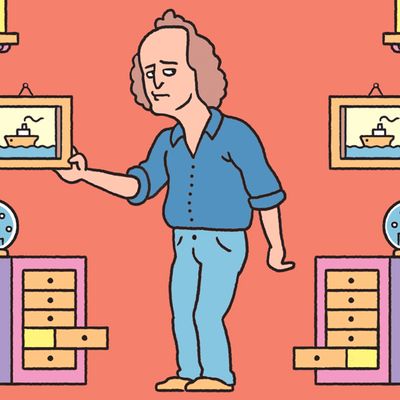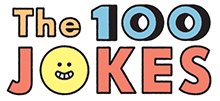
Steven Wright was one of the first stand-ups to hit it big back in the 1980s, after an acclaimed appearance on Johnny Carson’s Tonight Show in 1982, and his style of low-energy one-liners is still emulated by scores of comedians. We included one of his classic bits on our “100 Jokes That Defined Modern Comedy” list:
“I came home the other day and everything in my apartment had been stolen and replaced with an exact replica. I couldn’t believe it. I said to my roommate, ‘Look at this stuff, it’s all an exact replica.’ He said, ‘Do I know you?’”
Afterward, Vulture caught up the legendary comic to discuss his joke-writing process and what it’s like to be an influencer.
Do you remember when and how you came up with that joke?
I don’t remember. When I started out writing, I was just writing so many jokes. At the time, I lived in an apartment in Boston, so it must have been influenced by that, but I don’t remember, really, what triggered it all.
What was your joke-writing process like back then?
When I first started, I would look through the newspaper for interesting words. There was no joke, it was just a word, like the word electrolysis — I wrote a whole joke on that. For the first six months, I would sit down and try to write jokes, but then, after that, I didn’t sit down anymore. My subconscious was scanning all the time, the things that could be a joke. My mind was looking for stuff, and some of it would leap out as a joke. It was just like a factory in my head.
Does that still happen?
Yes, it never stopped. It never shut down, it never stopped. [Laughs.] I don’t go, “I’m gonna write a joke.” I just go through the world and see stuff. It’s like I exercised the part of my mind of noticing things, to the point where I’m now noticing things without even trying to notice them.
How many jokes do you write in, say, a month?
[Sigh] I don’t know, really.
I was just wondering if was a constant thing, or …
Oh, it’s like rain. I’ve used the rain analogy for years. It’s like, it’s nothing and nothing, nothing, nothing, and then it’ll drizzle, it’ll sprinkle, and then it’s nothing, then it’ll pour, pour, pour, then nothing.
Do you have a favorite of your jokes?
I do have a favorite, but it’s not the general public’s favorite. It’s kind of long. It had to do with: I’m going to my grandfather’s wake. I kneeled down at the casket, and I’m looking at him in the casket, and I started thinking about the batteries in my flashlight. Then I said to my aunt, “Maybe he’s not dead, maybe he’s just in the wrong way.”
That’s my actual favorite one, but usually, when people ask me if I have a favorite one, I just say no. I don’t know why, it’s almost like a private thing.
Who were the people that influenced you when you were starting?
There was a radio show in Boston that played two comedy albums every weekend, and I liked George Carlin and Woody Allen the best. They influenced me the most. Carlin would talk about everyday little things, like staples and everyday stuff, and that’s what I do, too. I do a different thing than he does with it, but he was one of the main reasons I wanted to be a comedian. And then Woody Allen had a double comedy album, and I loved the way he wrote a joke, like the way he structured — he had jokes within his stories, and those two guys affected me the most of anyone.
And how do you feel about all the comics whom you’ve clearly influenced?
When it first started happening, like 15 years ago, I thought, That’s pretty weird, but then I thought, Well, I was influenced by what I just said, Woody Allen and George Carlin. The thing is, you don’t think you’re influencing someone when you’re doing it. You’re just trying to write a joke, you’re trying to be funny. You’re not thinking that there’s some kid who’s 15 years old watching you on TV, and then in ten years he’s gonna be a comedian, and he’s gonna be influenced by it. It’s a weird thing.


